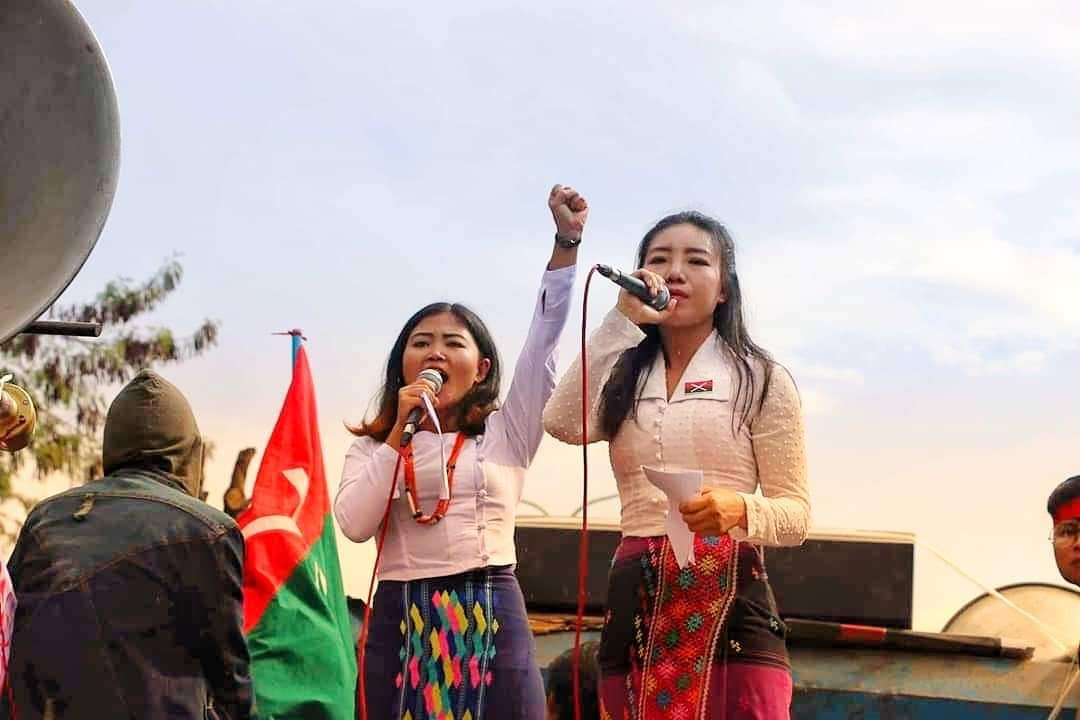
Sut Seng Htoi (right), a Kachin youth activist. (Kachin Youth Movement)
To mark International Women's Day, Myanmar Mix spoke to five inspirational women who are leading conversations on some of the country's most critical issues.
Advocacy coordinator for Action Committee for Democracy Development Thinzar Shun Lei Yi. (Julia Marip)
Thinzar Shun Lei Yi
One of Myanmar's most prominent peace activists, Thinzar Shun Lei Yi, 28, was raised in a military family.
Her father, a Tatmadaw officer, moved the family every two years across Myanmar, living in Rakhine and Mon states among other locations, while Thinzar Shun Lei Yi attended mostly military high schools, Bamar Buddhist institutes where Tatmadaw jingoism seeps through the curriculum.
Though sometimes she sat in more diverse state school classrooms, it wasn't until the family settled in Yangon a decade ago that the activist truly challenged the military's ideology through discussions with former political prisoners, the children of ethnic leaders, and other open thinkers on democracy and human rights at the American Center.
"Within 10 years I have completely changed myself," she says. "I take that as my victory."
Such a transformation of mind in her formative years has nurtured a critical view of the mainstream.
As Myanmar leaders once considered revolutionary donned suits and prefixed their names with government titles, she saw heavy compromise for power, blind loyalty to idolized figures, and distraction from the ultimate focus: building a tolerant, peaceful society.
Thinzar Shun Lei Yi threw herself into the youth movement, as president of Yangon Youth Network, as organiser of the inaugural Myanmar Youth Forum, as coordinator of the National Youth Congress.
Currently the advocacy coordinator for Action Committee for Democracy Development and host of a popular youth talk show, the Sagaing-born activist has made a name for herself internationally.
For her message of equality, her father's colleagues have criticized and blamed him. With fertile ground for arguments, family talks seldom involve politics, and when a topic does erupt, Thinzar Shun Lei Yi brings it back to the Buddhist concept of universal love, which usually seems to work.
In fact, she said, when it comes to conflict, her father has now come round to her way of thinking.
Gender Equality Network director May Sabe Phyu. (Supplied)
May Sabe Phyu
A draft law protecting women and girls is progress in the eyes of Gender Equality Network director May Sabe Phyu, 43—but it has flaws.
"It will provide some level of protection at least," says the longtime activist.
Unlike the vaguely worded Penal Code, the Protection and Prevention of Violence against Women Law gets specific when it comes to violence, such as domestic abuse or sexual harassment in the workplace.
Yet the draft legislation still follows the colonial-era law's definition of rape, "which is not comprehensive and does not follow the human rights code," she explains.
May Sabe Phyu has pushed for the law since its conception—she understands the dangers women face in Myanmar better than most.
Her father, a Burmese Buddhist, and her Kachin Christian mother raised her in northern Myanmar, where she recalls witnessing "a lot of discrimination, oppression" and damage caused by decades of conflict between the Myanmar military and ethnic armed group, the Kachin Independence Army (KIA).
She moved to Yangon at the age of 11 but stayed connected with her roots, making it her mission to support internally displaced persons (IDPs)—especially women.
While caring for HIV/AIDs patients, she co-founded the Kachin Women Professional Network and the Kachin Peace Network in 2011, and the Kachin Women's Peace Network in 2012.
These organisations act as a bridge between those who have fled to camps and the rest of the world, providing support, funds, and information.
When fighting intensified in 2012, May Sabe Phyu joined an anti-war march on International Peace Day and, along with fellow organisers, was arrested.
After 14 months of court proceedings following charges in several townships, the case resulted in a fine and presidential amnesty, but worse was to come for her Kachin husband, Patrick Kum Ja Lee.
In October 2015, the Tatmadaw accused him of sharing on Facebook a photo of a man in Kachin-style longyi standing on the head of the Myanmar military chief.
He was released after six months in Insein Prison, by which time May Sabe Phyu had challenged so-called race and religion laws proposed by Buddhist hardline nationalists that were criticized for attempting to curb interfaith marriages.
As a result, the mother of three received death threats and violent images over the phone. Her personal details and contact number were posted on an escort website.
"We received a lot of phone calls, some people sent us Viber messages of nude photos, dirty messages. We had to change our numbers again and again," she says.
The threats and harassment she could take, but more painful was the sense of insecurity clouding over her family. She consoles them by saying they are standing for justice and the good of the people.
"Everybody has only one life," she adds. "I just don't want to stop because I am afraid."
Civic educator Khin Sandar Tun. (Supplied)
Khin Sandar Tun
Kyaukphyu often makes headlines these days for its proposed deep sea port—a key part of China's global trading strategy—but amid inter-communal unrest eight years ago local Muslim residents were thrown into muddy camps, where many are confined to this day.
Khin Sandar Tun, 31, was studying in Yangon when rumours reached her hometown that Muslim men had raped a Buddhist woman. Her grandparents were still there; a mob burned down their house and they fled on a boat to Sittwe
Despite being Kaman Muslim, an officially recognized minority in Myanmar, they have been reduced to second-class citizens and now live in a camp.
Khin Sandar Tun lobbies the government to return the displaced people to their homes, including her 89-year-old grandfather whose health is deteriorating.
But what really galvanised her into action was the death of reporter Ko Par Gyi, who was covering conflict in Karen state when he was tortured and killed in military custody in 2014.
That year Khin Sandar Tun took part in a demonstration demanding justice for the journalist. She has since travelled around Myanmar promoting civic engagement, coordinated for the Peace Cultivation Network, and spoken publicly on peace and tolerance.
In May 2018 she was arrested and charged in Bahan township court under the peaceful assembly law for her role in an anti-war protest highlighting the plight of Kachin IDPs.
The case is still on-going for the leading interfaith activist, who is concerned about the future of her country.
"[The government] said Myanmar is going forward towards a federal democracy but their thinking is not federal at all," she says. "The Rakhine situation is looking as dire as ever."
Myanmar programme director for US-based think tank Project 2049 Institute Cheery Zahau. (Supplied)
Cheery Zahau
This year may see the political resurgence of Cheery Zahau, a 38-year-old mother of two and longtime champion for Chin people.
"My kids are still small; at the same time there are so many issues that need to be sorted out on the ground," she says.
The activist leads the finance team for the Chin National League for Democracy (CNLD) and develops gender policy for the party, which proposes at least 30 percent of its candidates will be women.
Her other roles include Myanmar programme director for US-based think tank Project 2049 Institute and independent researcher on sexual and gender-based violence.
But Cheery Zahau is increasing her CNLD work ahead of the late 2020 election in the hope of taking a more political—yet so far undefined—post if the party performs well.
Though she lost the 2015 election's Falam township seat for the lower house of Parliament to a National League for Democracy (NLD) candidate, Chin people still discuss local issues with her: property and vehicle registration, land rights, freedom of religion, road infrastructure, and open border trade; the list goes on.
She also wants to tackle a customary practice of blocking women from inheriting the property of their fathers or husbands.
"When it comes to the community, we don't listen to women, but then we give women the responsibility to take care of the whole family," she says.
In 2003 Cheery Zahau worked for a Chin women's organisation in the northeast Indian state of Mizoram when a Myanmar man was accused of raping a local woman.
"They went after all the Chin residents," she recalls. "It lasted about four months. About 20,000 people were pushed back to Chin state, some of them died on the way back due to malaria, giving birth, and infections."
Her office became a shelter for displaced people and she became a devoted political activist.
"I feel injustice is everywhere and I can really do something about it," she says.
In 2004 she founded the Women's League of Chinland, an umbrella organisation of Chin groups, and documented military rape against Chin women.
Her work made her a target for threats and surveillance, so in 2009 she moved to Thailand to study human rights and returned in 2012 to Myanmar, where she has watched a slow and incomplete transition to democracy.
"I don't think the NLD lived up to their promise," she says. "They make some progress, but it is one step forward and two steps back."
Kachin National Youth Network general secretary Sut Seng Htoi. (Kachin Youth Movement)
Sut Seng Htoi
"Every Kachin wants self-determination and every Kachin wants a new political system," says Sut Seng Htoi, 26, a youth activist from the mining region of Tanai township.
Her own village was abandoned because of conflict between the Tatmadaw and the KIA in 2018.
Though Sut Seng Htoi at the time had already moved to Kachin capital Myitkyina, she began working at a grassroots level to help people who fled the violence—a show of commitment that was recognized by a US-based network of donors and volunteers, who last year gave her the Citizen of Burma Award.
"The government took no action for their people," she says. "That is the biggest reason why I became an activist."
As the Kachin National Youth Network general secretary, she advocates for education, health and social needs of the IDPs.
Many were trapped in forests without enough food or water when the conflict intensified in April 2018, pushing Sut Seng Htoi and other activists to call for government intervention to rescue the displaced people.
No response came, she said, so they applied for permission to hold a protest. That wasn't granted, either, but the activists still demonstrated besides a government compound in Myitkyina.
"At the time we were thinking not about permission but about the people who were trapped in a war zone," she says.
She was charged and paid a 30,000 kyats (US$22) fine under the peaceful assembly law as well as another 60,000 kyats ($42) fine when she held a protest later in the year.
Most of Kachin's problems, such as widespread drug abuse and environmental harm, can be traced to the conflict, she explained.
In turn, the conflict spawns from the desire for a federal democracy, she said, which bolsters the ranks of the KIA and leaves women to take responsibility for the whole family.
With this year's election, the status quo is unlikely to change, she predicted, because Kachin political parties are unprepared while the ruling National League for Democracy is more organised.
"Kachin parties should spread their message more," she says. "They need a strategy that considers the needs of the people."

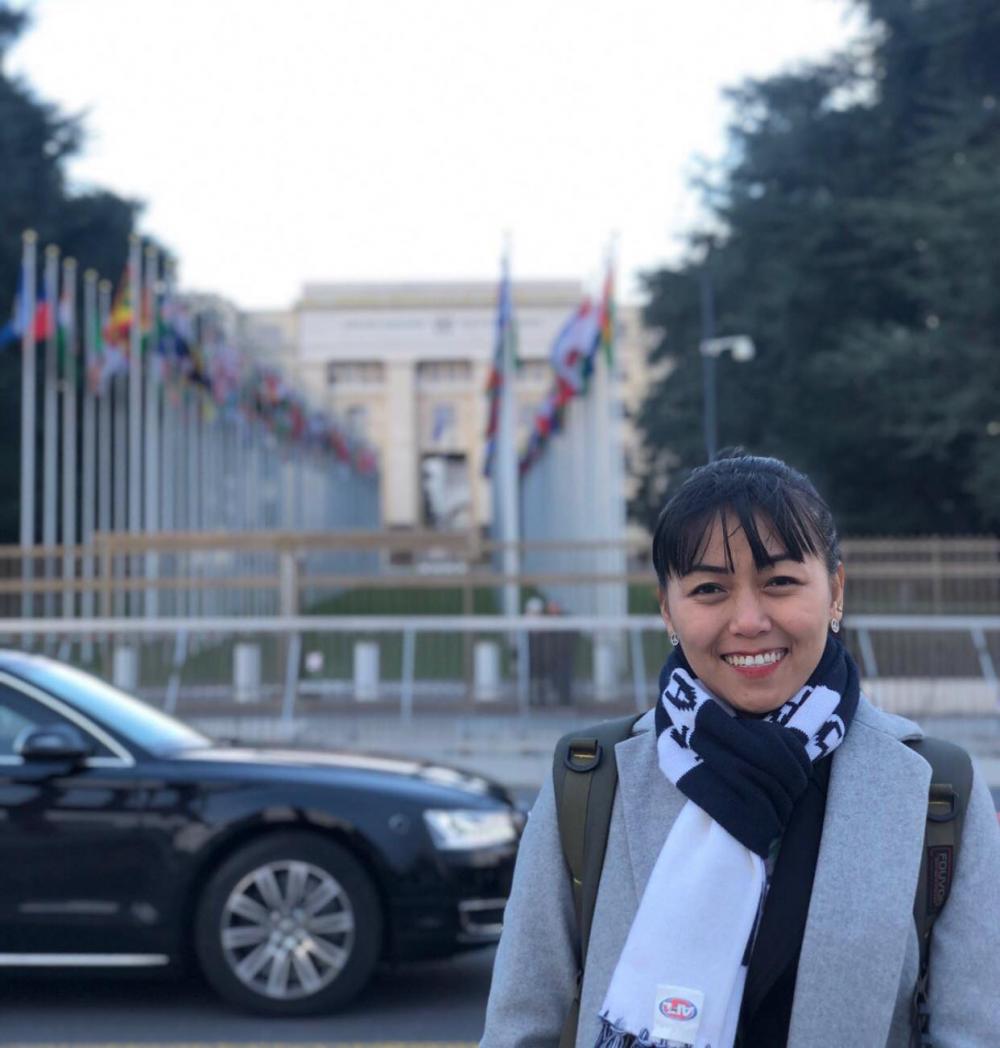
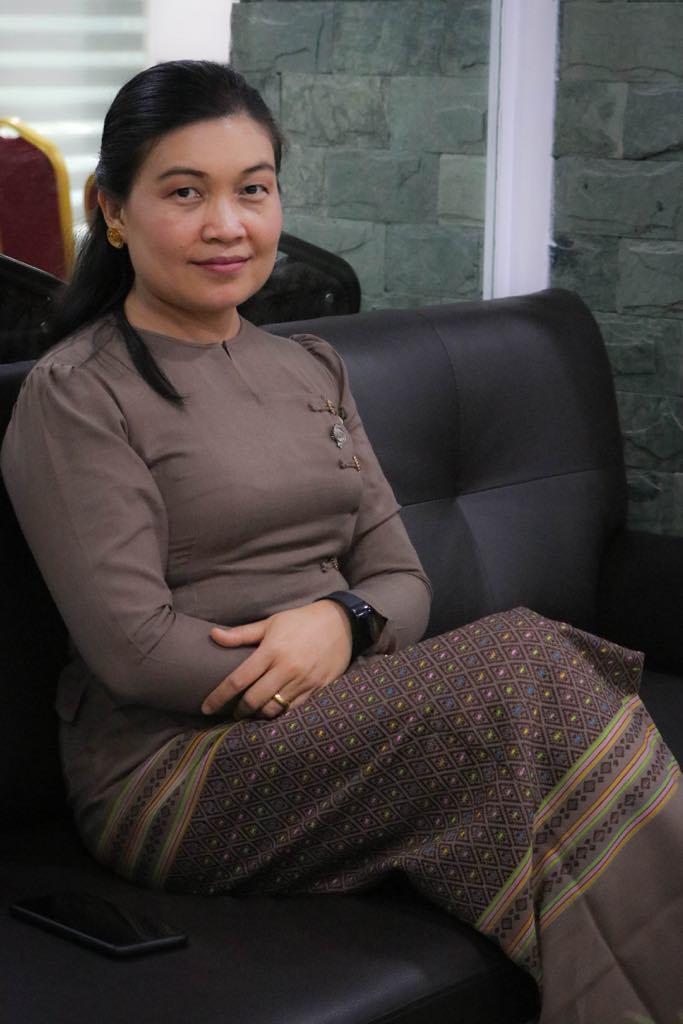
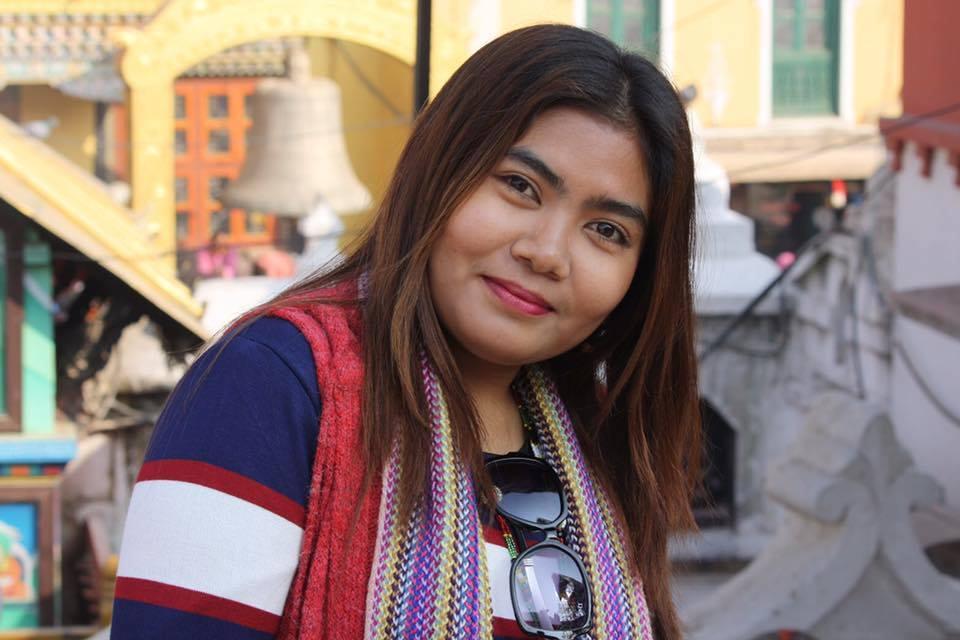
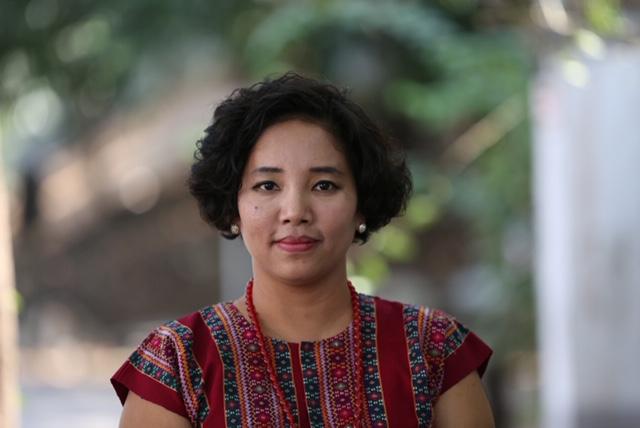
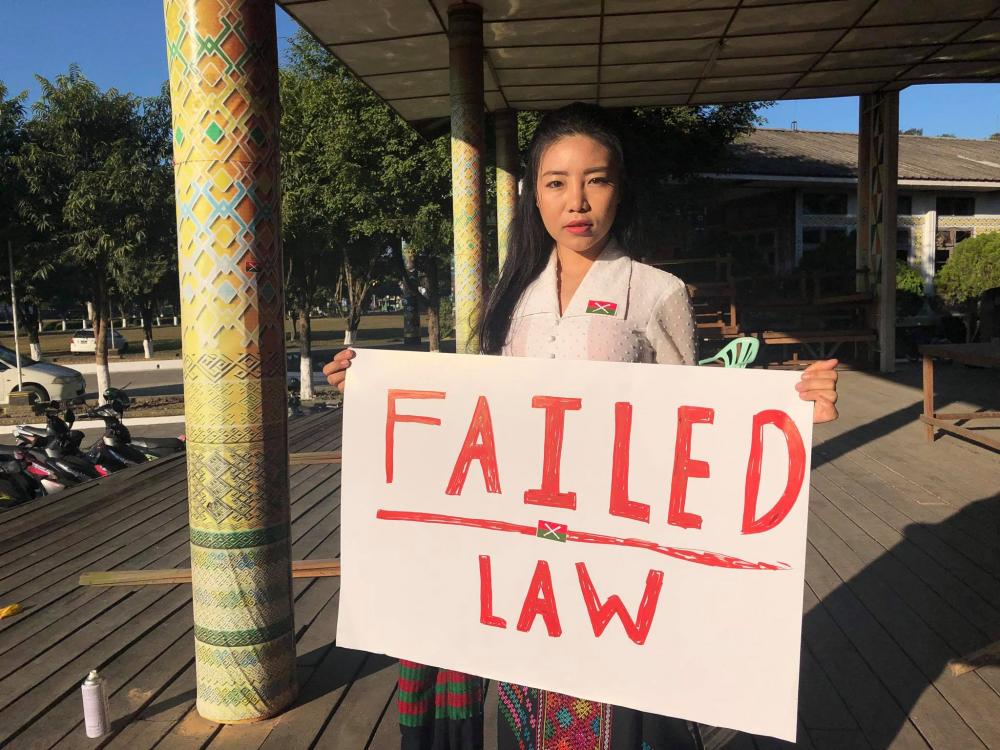
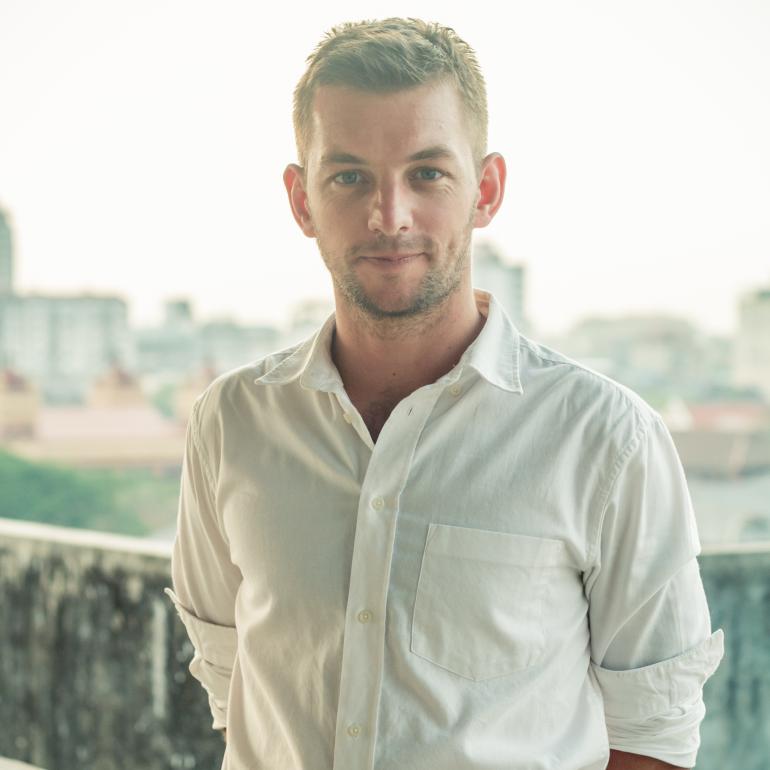
No comments:
Post a Comment